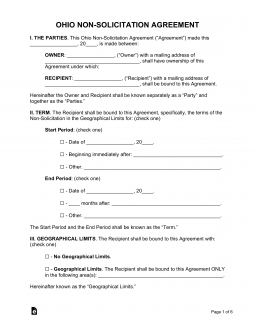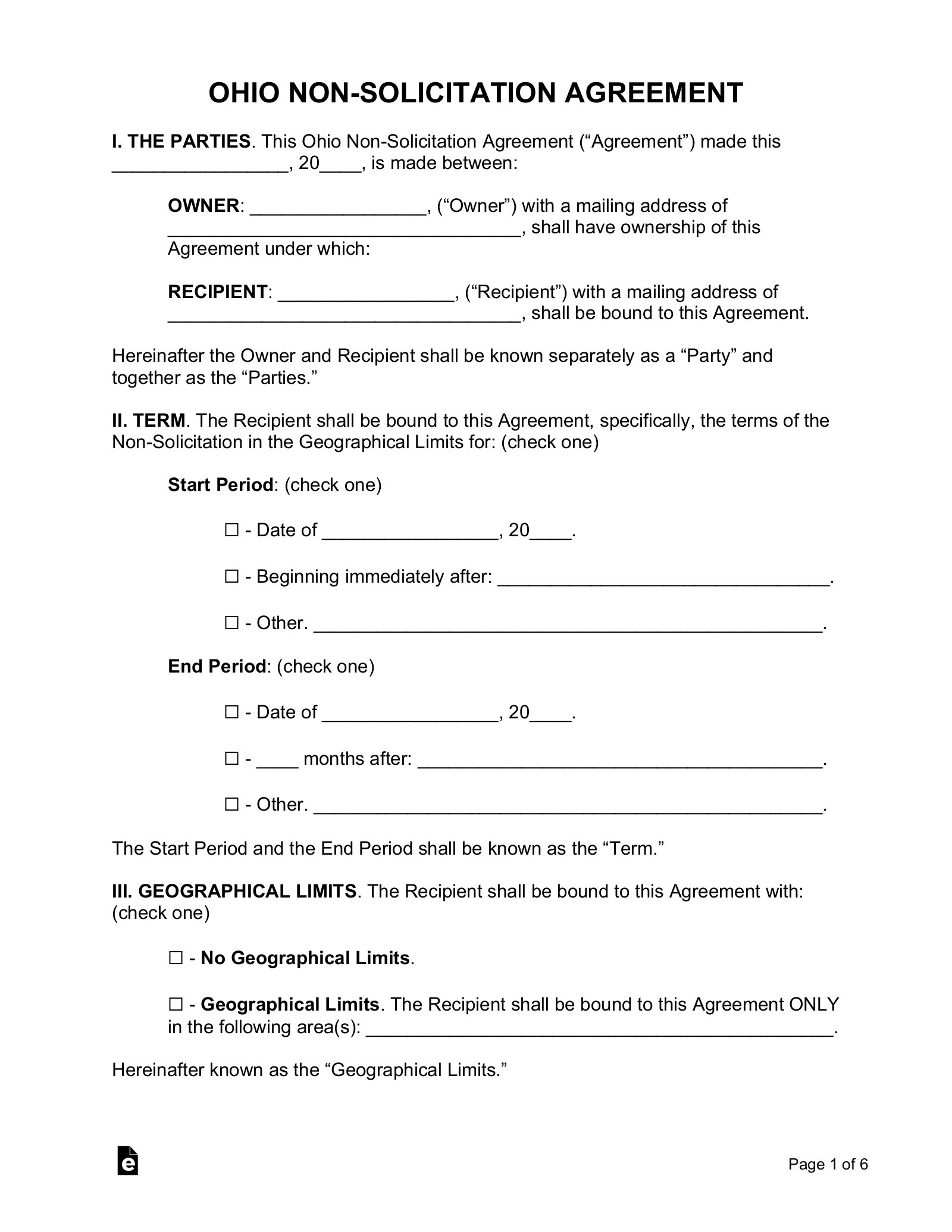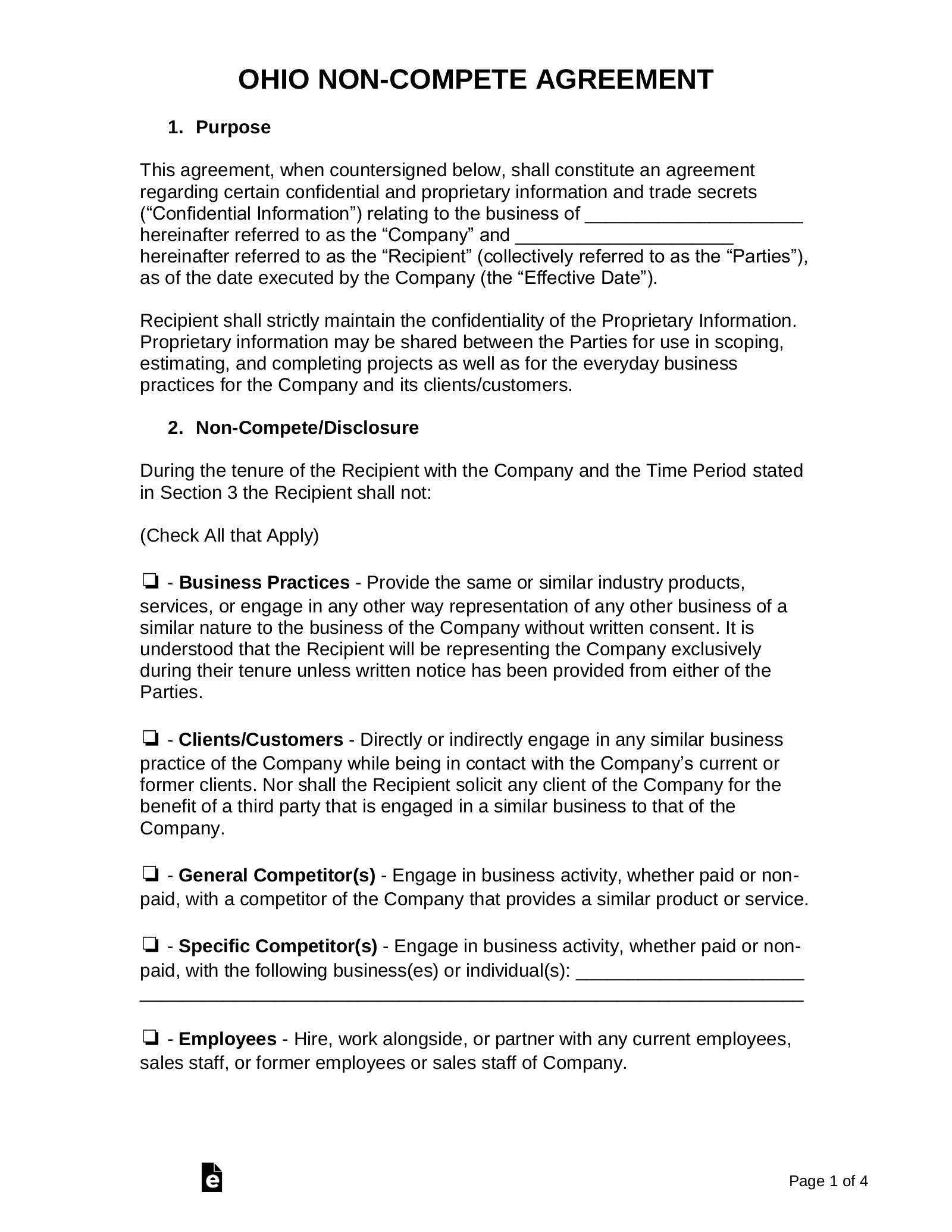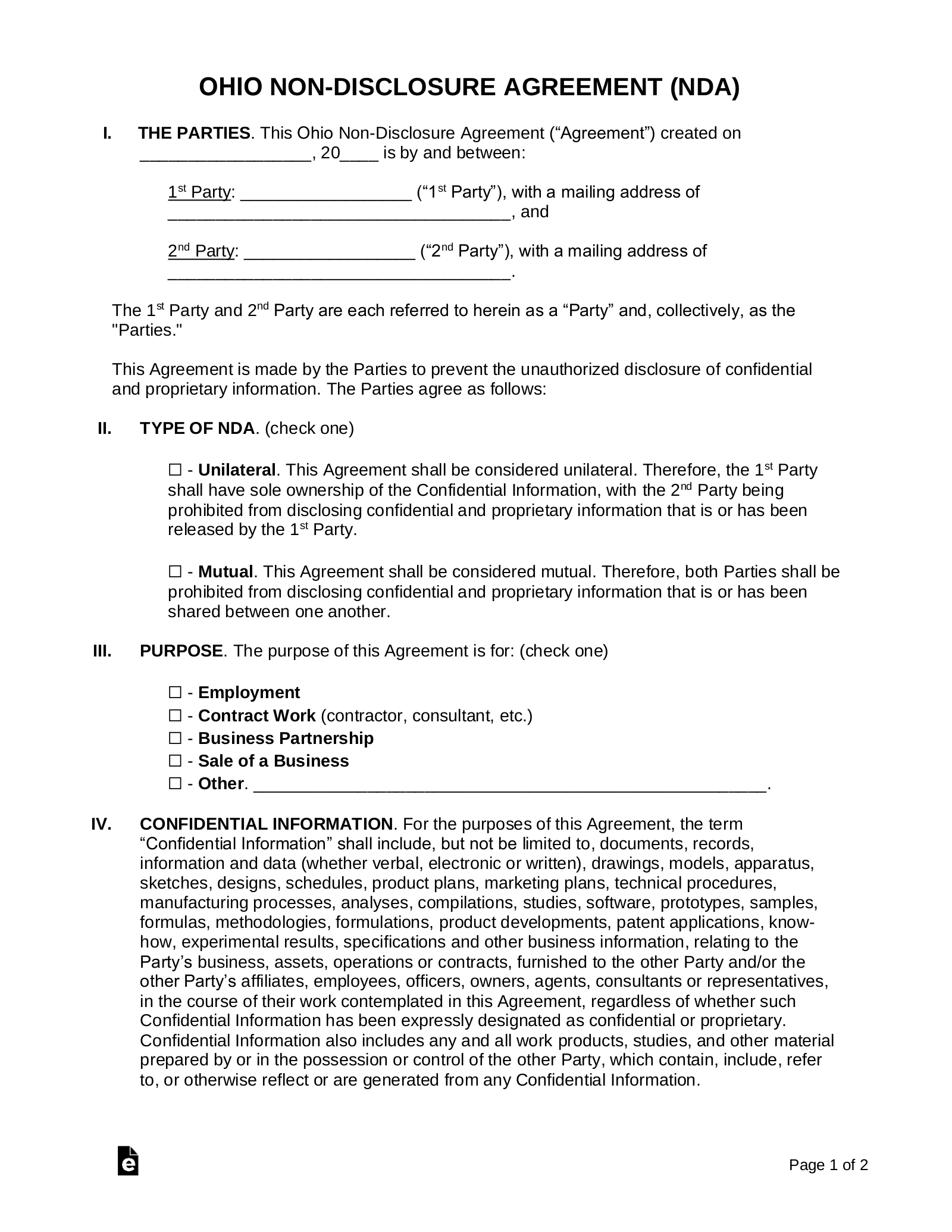Updated October 16, 2023
An Ohio non-solicitation agreement is a contract between an employer and an employee that prevents the employee from making commercial use of the connections that they made while working at the company. These connections can include the company’s clients, employees, contractors, suppliers, and other professional relationships that are essential to its business. The agreement is intended to protect the employer’s business interests from direct competitors.
Is It Legally Enforceable in Ohio?
Yes. Non-solicitation agreements are legally binding in Ohio, although there is no specific state statute governing them.
The courts use the test of “reasonableness” to determine whether to enforce a non-solicitation agreement. This means that they can consider the agreement’s time and geographical limitations, as well as a host of other factors, to determine whether it is reasonable. (Raimonde v. Van Vlerah (1975))
Table of Contents |
What Types of Solicitation Can Be Prohibited?
In Ohio, a non-solicitation agreement can be used to restrict an employee from recruiting, hiring, or contacting the employer’s:
- Former or current clients
- Former or current employees
- Independent contractors
- Suppliers, associates, etc.
What Should Be Included in the Agreement?
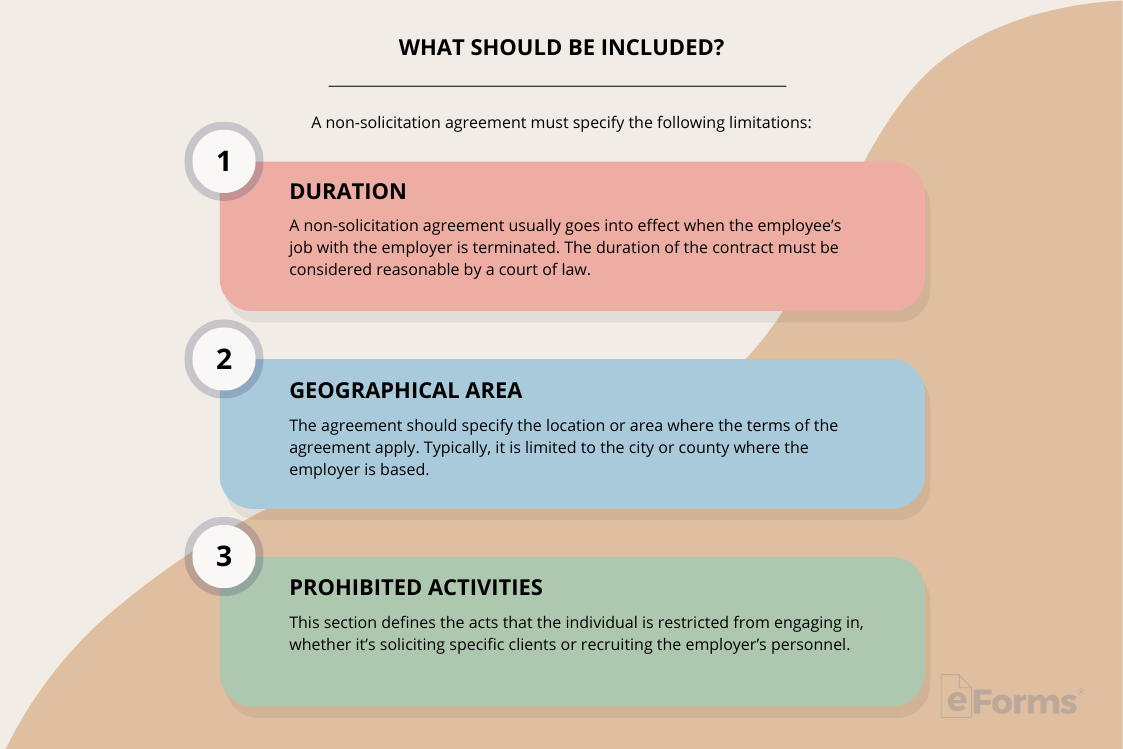
Under Ohio’s case law, a non-solicit covenant must include reasonable limitations with regard to the following:
1. Duration
A non-solicitation agreement usually goes into effect when the employee’s job with the employer is terminated. The duration of the contract must be considered reasonable by a court of law.
2. Geographical Limitation
The agreement should specify the location or area where the terms of the agreement apply. Typically, it is limited to the city or county where the employer is based.
3. Prohibited Activities
This section defines the acts that the individual is restricted from engaging in, whether it’s soliciting specific clients or recruiting the employer’s personnel.
Related Forms
Download: PDF, MS Word, OpenDocument
Download: PDF, MS Word, OpenDocument

